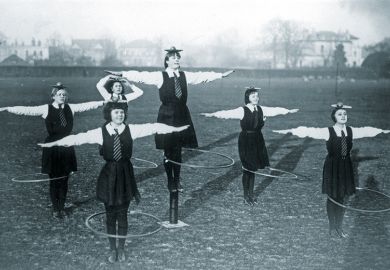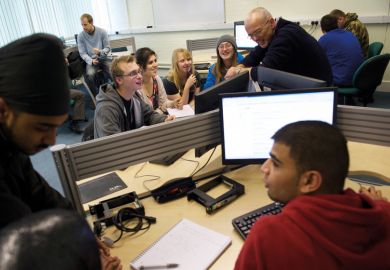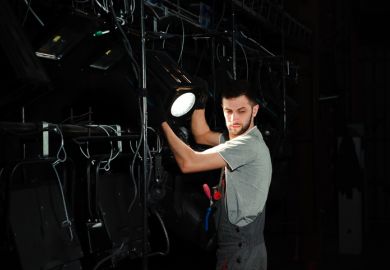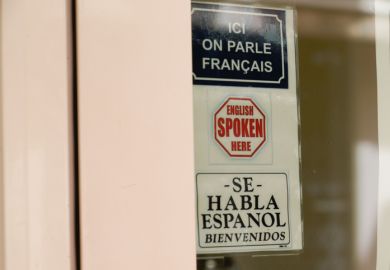Academics in the humanities must reach out to other disciplines and dare to address some of the key challenges of the times, a conference has heard.
Speaking at Thinking Big: New Ambitions for English and the Humanities, organised by the University of London’s Institute of English Studies and Newcastle University, Charles Forsdick, James Barrow professor of French at the University of Liverpool, argued that the humanities in the English-speaking world were often characterised by “linguistic, geographical and methodological limits”, when “part of thinking big means getting involved in the ‘global challenges’ agenda”.
Lyndsey Stonebridge, professor of modern literature and history at the University of East Anglia, said she felt “despairing that literary and English studies are so poorly represented” on projects tackling big worldwide issues such as education, public health and climate change.
“We have more chance of making humanitarian projects work if we don’t rely solely on the managerial social sciences,” Professor Stonebridge said.
Professor Stonebridge argued that it would help if all literary scholars were to become “postcolonial critics”. For various historical reasons, English had now become “an international language…But if English is everywhere, why isn’t English studies?” she asked.
Other speakers at the event explored how the humanities could embrace collaboration with other disciplines.
Co-organiser Rick Rylance, dean of London’s School of Advanced Study, suggested that “the breakthroughs happen at the boundaries”. His own work with clinical neurologists, exploring what happens in the brain when people read poetry or literary prose, had required him to learn about “brain science, statistical techniques and the approaches to funding required in projects involving human subjects”.
Unlike what he called “near-neighbour interdisciplinarity” between humanities disciplines sharing many methods and assumptions, he urged delegates to embrace the challenges of “distant-cousin interdisciplinarity”, which “changes the object of knowledge and raises questions about what counts as evidence”.
Veronica Strang, director of Durham University’s Institute of Advanced Study, described today’s academy as “like a series of Russian dolls which impose disciplinary identity at every scale”. Interdisciplinarity, by contrast, was like “a differently shaped, badly behaved doll” which “strays across boundaries, and gets cosy with strangers across the academic spectrum”.
To achieve this, Professor Strang went on, “interdisciplinary institutes or centres” needed to have “their own neutral space” and “sufficient academic and managerial independence from faculties and schools, while also being fully represented on core institutional bodies”. They also needed to be “positively supported in institutional narratives, most especially at senior leadership levels” as well as supported in more practical ways.
Herself a member of the Higher Education Funding Council for England’s interdisciplinary advisory panel, Professor Strang hoped that “the next research excellence framework would incorporate “robust criteria that will distinguish real interdisciplinarity (and good interdisciplinarity) from more performative efforts”.
It was left to a Polish delegate to point out an unusual barrier to interdisciplinarity, namely that, in his country, “disciplines are laid down by the Ministry of Science and Higher Education and imposed on everybody”.
Register to continue
Why register?
- Registration is free and only takes a moment
- Once registered, you can read 3 articles a month
- Sign up for our newsletter
Subscribe
Or subscribe for unlimited access to:
- Unlimited access to news, views, insights & reviews
- Digital editions
- Digital access to THE’s university and college rankings analysis
Already registered or a current subscriber?








